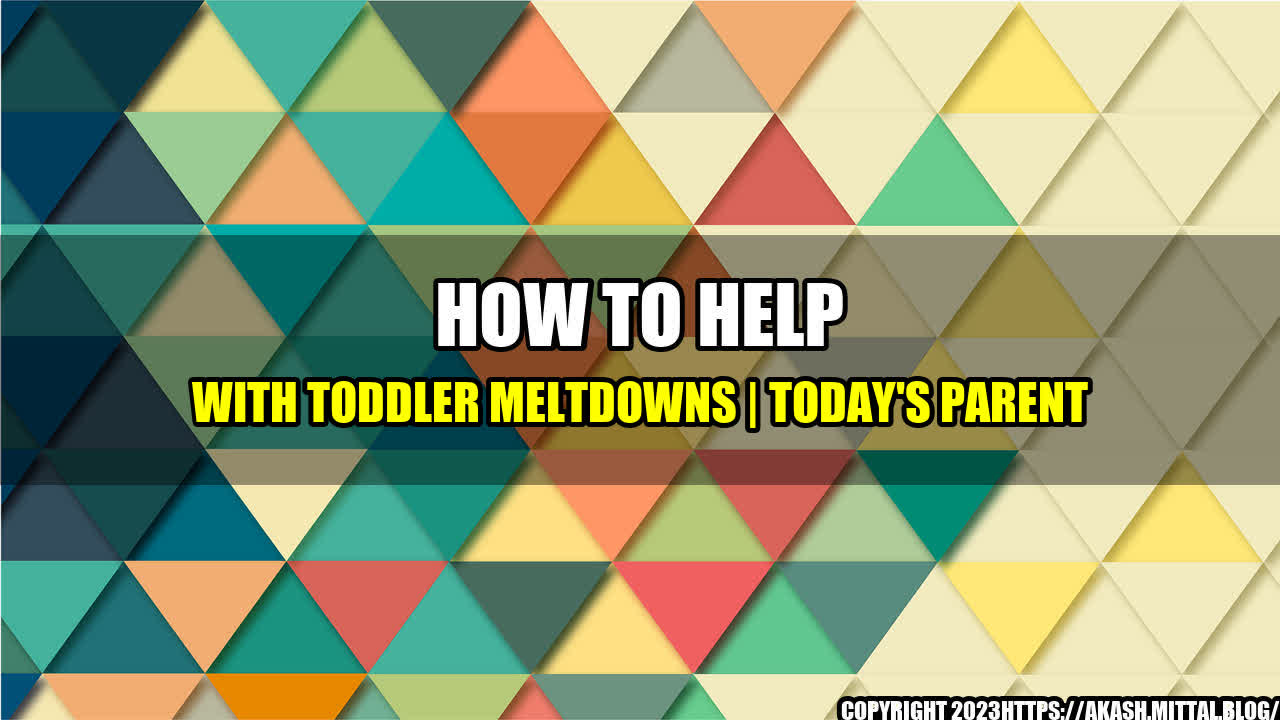The Story of My Toddler's Epic Meltdown
It was a typical day at the grocery store with my 2-year-old daughter. We were walking down the cereal aisle when she spotted her favorite box of sugary cereal and reached out to grab it. I calmly told her that we weren't going to buy that cereal today and tried to redirect her attention to a healthier option. That's when it happened.
My daughter's face contorted into a red, angry mess as she let out a blood-curdling scream. She stomped her feet and began furiously grabbing at boxes of cereal around her. I could feel everyone's judging eyes on us as I tried my best to calm her down and carry her out of the store. It felt like the longest walk of my life.
If you're a parent, you've likely experienced a similar scenario with your own toddler. Tantrums are one of the most common challenges parents face with young children. But don't worry, there are strategies you can use to help de-escalate the situation and teach your child healthy coping mechanisms.
Toddler Meltdowns
A study by the Journal of Child Psychology and Psychiatry found that toddlers throw an average of one tantrum per day. That's 365 emotional outbursts in a year! The study also found that the most common triggers for tantrums are when a child is tired, hungry, or wanting attention.
Another study by Pediatrics showed that tantrums can last anywhere from 90 seconds to 20 minutes. That may not sound like a long time, but anyone who has witnessed a toddler meltdown knows that it can feel like an eternity.
All of this research highlights the need for parents to have effective strategies for dealing with toddler meltdowns.
Practical Tips from Sarah
1. Stay Calm
One of the most important things you can do as a parent during a toddler meltdown is to stay calm. Your child feeds off of your emotions, so if you're getting angry or flustered, it will likely escalate the situation. Take a deep breath and approach the situation with a clear head.
2. Validate Their Feelings
It's important to remember that your toddler is experiencing big emotions and doesn't have the language or skills to express them in a healthy way yet. Let them know that you understand they're feeling upset, and that it's okay to feel that way. This can help them feel heard and acknowledged.
3. Provide a Safe Space
During a meltdown, your child may feel overwhelmed and out of control. Providing a safe space, like a calm corner or special chair, can help them feel more secure and contained. It's important to make sure this space isn't used as punishment, but rather as a place for your child to calm down and regain control of their emotions.
Conclusion
- Dealing with toddler meltdowns is a common challenge for parents.
- Tantrums can be triggered by things like hunger, tiredness, or a need for attention.
- Staying calm, validating your child's feelings, and providing a safe space can all be effective strategies for de-escalating a meltdown.
Personal Anecdote
When my daughter had her epic meltdown in the grocery store, I felt embarrassed and overwhelmed. But by staying calm and validating her feelings, we were able to make it out of the store without any further incidents. Since then, we've created a special calm corner in our home where she can go when she's feeling upset or overwhelmed. This has been a helpful tool for both of us.
References and Hashtags
Journal of Child Psychology and Psychiatry: https://doi.org/10.1111/jcpp.13127
Pediatrics: https://pediatrics.aappublications.org/content/128/5/863
Hashtags: #toddlermeltdowns #parentingtips #childbehavior #tantrumssolutions
Category: Parenting and Child Development

Curated by Team Akash.Mittal.Blog
Share on Twitter Share on LinkedIn